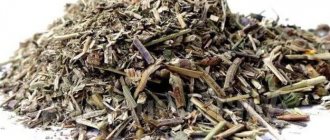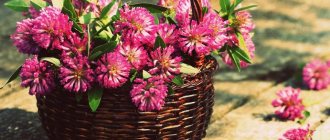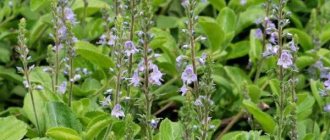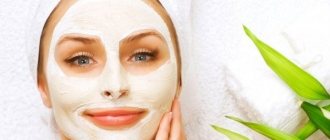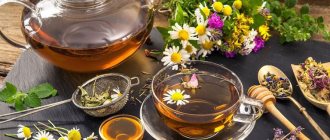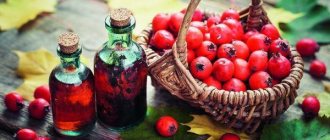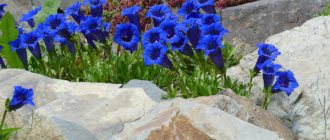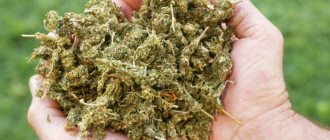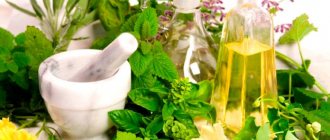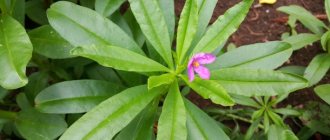Symptoms of the onset
This is first of all:
- Critical days shorten and disappear over time.
- Hot flashes of chills and heat, following each other, especially in the face and neck.
- Increased sweating.
- Insomnia, emotional swings.
- Severe headache, similar to a migraine.
- Dryness and irritation of the mucous membranes, including the vagina.
- Frequent urge to urinate, sometimes false.
- Severe fatigue, fatigue.
External changes during menopause
During this period, women also experience external changes. The skin ceases to be elastic, becomes dull, nails and hair begin to grow more slowly and suffer from brittleness and dryness. Dandruff appears and hair may begin to fall out. During this period, it is more necessary than ever to take care of your skin, hair and nails. Moisturizing creams and masks should be applied more often than usual to maintain a woman's beautiful appearance.
Due to changes in the body and slower metabolism, weight gain is possible. There are often cases when metabolism accelerates, and on the contrary, weight rapidly drops.
During early menopause, a woman’s food and flavor preferences and even her character may change.
Internal changes
A woman's sex drive decreases. Due to a decrease in the absorption of calcium by the body, high fragility of bone tissue is observed and the risk of fractures increases. The process of intestinal motility is disrupted and bloating often occurs. Due to the weakening of muscle tone, sudden tension (when laughing or coughing) can cause urinary incontinence. Frequent allergic reactions occur due to decreased immunity. Blood pressure increases, heart rhythm is disturbed, tachycardia and rapid heartbeat occur. Herbal remedies for menopause should help reduce the severity of symptoms.
Psycho-emotional state
If a climacteric change in a woman’s life occurs suddenly and rapidly, the woman may experience a number of mental discomforts. Depressive states, loss of interest in life, and constant sadness occur. A woman’s love for herself and her appearance decreases. Sleep is disturbed, which causes irritability, anxiety, and headaches. Dizziness often occurs, attentiveness and memory decrease. In such cases, the doctor may recommend taking valerian and motherwort.
Duration of menopause and its stages
The entire process of changing the function of the female body takes about 10-15 years. After all metamorphoses are completed, the woman ages. Such a long-term and gradual change consists of several stages:
- Premenopause. Begins after about 45 years of age. The menstrual cycle begins to change, and signs of irreversible aging appear. It is necessary to consult a doctor to prescribe sedatives in order to avoid psychological disorders. This period lasts about 3-4 years, during which time a woman can still become pregnant and carry a child.
- Menopause. It occurs at the age of 48-50 years immediately after the end of the last menstruation and lasts about a year. A consultation with a gynecologist is necessary to get tested for the level of the FSH hormone. A high level of it in the blood means the onset of menopause.
- Postmenopause. There is a complete stop in the production of sex hormones, the ovaries decrease in size. During this period, the most pronounced symptoms of menopause appear. Most women have a hard time with this stage and require therapeutic or preventive therapy.
Treatment
Currently, there are many medications that can alleviate the condition of women during menopause. But often they are not suitable for a number of reasons, side effects and contraindications. Therefore, it is most reliable to use herbal-based preparations. Traditional medicine based on easily accessible plants has also proven itself well. You need to contact your doctor and he will advise you on what herbs to drink during menopause.
Effective herbs and teas for hot flashes
One of the first signs of approaching menopause is disturbances in thermoregulation, expressed in sudden flashes of heat, accompanied by lack of air and redness of the skin of the face and neck. Most often, women complain about hot flashes, since they occur suddenly and take them by surprise, interfering with normal work and daily activities. Among folk recipes, most are devoted to alleviating the condition of menopause and, in frequency, reducing the intensity of hot flashes. They are quite simple and effective.
Dill water is useful not only for babies and elderly people suffering from intestinal disorders and flatulence. It perfectly relieves the feeling of heat and reduces the frequency of hot flashes by almost 10 times. Preparing the decoction is very simple. 3 tbsp. l. pour 500 ml. boiling water and let sit for 1 hour. After 30 min. after meals, drink 0.5 cups of infusion up to 4 times a day for a month. It should be remembered: decoctions and infusions act gradually, the effect appears only after a few days, but it lasts a long time and does not cause harm to the body.- Red clover seems to be specially created by nature to help a woman during a difficult period of hormonal changes. It has a complex effect, preventing breast cancer, strengthens the heart muscle, relieves spasms, normalizes breathing and pulse rate. Clover contains micro and macro elements, vitamin C, antioxidants, which are so necessary to support the body. To prepare the decoction, take 2 tbsp. dry herbs for 1 tbsp. boiling water, pour into a thermos for 8 hours, then strain and take 50-60 grams. 4 times a day.
- Peony has a calming effect even in the form of a bouquet in a vase. Its effect when preparing a decoction or alcohol tincture is enhanced several times. Since hot flashes cause nervous tension due to their unpredictability, a sedative effect will be helpful. You can brew dry material or purchase a tincture at the pharmacy. Please note: pharmaceutical preparations are made with alcohol, so they are not suitable for those who drive. For self-cooking, take 1 tsp. chopped roots per 400 ml. boiling water, leave for 30 minutes, take a tablespoon three times a day.
- Sage is also one of the list of effective herbs for menopause. It simultaneously has a rejuvenating effect and reduces the intensity of hot flashes, relieving headaches and preventing migraine attacks. Used in 3 variants, when using pure juice, decoction or adding to the bath. The easiest way is to prepare a decoction of 2 tbsp. spoons of raw materials and 3 cups of boiling water. Recommended intake: instead of tea during the day. It is also suitable for a bath, which is taken 15 minutes before bedtime.
- Hellebore is usually prescribed for diseases of the thyroid gland, but it perfectly relieves very strong and frequent hot flashes in severe menopausal syndrome. In addition, it helps reduce weight. The plant is relatively poisonous; before use, you must consult a doctor and strictly follow the dosage. For use, it is better to buy a ready-made infusion at a pharmacy.
- Valerian and motherwort are the most popular herbs for menopause from hot flashes. They calm, relieve emotional stress, reduce the frequency and intensity of hot flashes. Served in the form of herbal tea, in bulk and in alcohol infusions.
- Problems with high blood pressure can be solved using decoctions of St. John's wort and calendula; the decoction is prepared according to the general principle; the course of treatment lasts 3 months.
Read
Using a red brush during menopause
A woman will have to choose which herbs to drink for hot flashes during menopause. The main guideline will be your well-being and emotional state.
Herbs containing hormones
Plants containing phytoestrogens can help with severe symptoms of menopause associated with hormonal changes, but should be prescribed exclusively by a doctor. The gynecologist will advise how to relieve hot flashes during menopause. Herbal mixtures usually consist of several types of plants suitable for combating each individual symptom. Therefore, each recipe is created based on the characteristics of the female body in the presence of certain signs of menopause. Unlike synthetic products, when taking herbal products, the effect occurs gradually:
- Angelica root. Helps restore the functions of organs and systems suffering from an imbalance of female and male hormones in a woman’s body. At the initial stage, it can restore the menstrual cycle and eliminate vaginal dryness. Hot flashes during menopause, what to do? This plant will help relieve your health during hot flashes.
- Peony. Used as an alcohol tincture. Helps with hot flashes and sweating, has a calming effect. Intended for course use.
- Oregano. Hot flashes during menopause, what to do? Oregano copes well with the manifestations of hot flashes, helps stabilize the functioning of the ovaries, and evens out the emotional background. Oregano is contraindicated during pregnancy.
- Red clover. Contains vitamins, microelements and fatty acids. During menopause, clover helps cope with hot flashes and nervous excitement. Helps the body fight fluid stagnation and discomfort in the pelvic area. Headaches become less frequent, and sexual desire becomes more intense. Clover promotes skin rejuvenation.
- Vitex sacred. After long-term regular use of herbal remedies for menopause based on this plant, panic attacks, mood swings and sleep problems disappear.
- Red brush root. Serves as a prophylactic against formations of various etiologies.
- Borovaya uterus. During menopause, it helps maintain estrogen levels in the blood. Helps reduce the manifestations of cardiovascular and nervous system disorders. Has a number of side effects. You should stop taking it if you experience excessive vaginal bleeding, persistent headaches, recurring dizziness, and liver problems. During menopause, the uterus helps cope with irritation in the genital area, hot flashes and reduces the likelihood of osteoporosis.
- Horny goat weed. It has a positive effect on the cardiovascular system, increases libido, and stimulates blood circulation in the pelvic organs.
- Sage. It has rejuvenating, restorative and soothing properties. It is used both externally and internally. Sage during menopause helps cope with the manifestations of hot flashes, stabilize hormonal levels, and ovarian function. Rejuvenates the skin. For greater benefits to the body and to prevent the consequences of menopause, it is necessary to take sage long before the onset of this period. During menopause, sage can be used in the form of juice, decoction, infusion, and even take baths with a decoction of sage leaves.
Why choose herbal treatment?
All medications are chemicals contained in tablets that imitate nature. Tablets and capsules imitate the effect of natural components on the human body. Only this action increases significantly.
But no one talks about contraindications. After all, they increase by the same amount. So isn’t it better to use remedies that were originally created for this by nature and included in the “golden collection” of traditional medicine?
A natural pharmacy provides great benefits to the body during menopause.
Key Features:
- calming effect, restoration of stable functioning of the central nervous system;
- removal of harmful substances and heavy metals;
- purgation;
- normalization of the liver and gall bladder;
- stabilization of appetite and acceleration of metabolism.
Infusions and decoctions based on medicinal herbs are an excellent help for improving the condition during menopause. However, in certain cases, drug support may be required; in this case, doctors prescribe hormonal drugs to restore the optimal functioning of all organs and systems in the body.
In combination with traditional medicine, this therapy will bring maximum effect in the shortest possible time. It is recommended to take more fruit and vegetable juices, as well as drinks based on medicinal plants
It is important to observe the correct dosage and drink them systematically for a long time.
Cohosh tincture
You need to pour 100 g of dried and crushed cohosh herb into 500 ml of alcohol and place it in a tightly closed container in a dark place for 1 week. Every day the tincture needs to be shaken, after which it is filtered and used for medicinal purposes 2 times a day, 35 drops mixed with 50 ml of water.
You can improve your condition during menopause and get rid of unpleasant symptoms with the help of a healing herbal mixture. To do this, take 2 tablespoons of motherwort herb and mix with 1 tablespoon of hawthorn inflorescences and 3 teaspoons of marshweed. You can also add 4 teaspoons of woodruff and 5 teaspoons of blackberry leaves.
Brew 1 teaspoon of finely chopped leaves of fragrant rue in 2 cups of boiling water and keep in a thermos for 8 hours. The finished liquid is filtered and taken 100 ml 4 times a day before meals.
Peony tincture
An alcohol tincture of peony root relieves hot flashes and sweating, promotes normal sleep, reduces irritability and emotional imbalance. This remedy calms the nervous system during menopause. To make it, 60 g of finely chopped peony rhizome is poured with 500 ml of vodka, sealed hermetically and set aside in a dark, cool place to infuse. After 1 month, filter the finished drug and take 1 tablespoon approximately 30 minutes before bedtime.
An infusion of dried shepherd's purse flowers helps cope with the unpleasant symptoms of menopause. To prepare it, 5 g of crushed raw materials must be brewed in 100 ml of boiling water and left in a warm place for at least 2 hours. Take 2-3 tablespoons before meals, but no more than 4 times a day.
Dill seeds
A fairly effective way to get rid of fever, hot flashes, and sweating during menopause is an infusion of dill seeds. Dill liquid contains many useful vitamins and minerals, has a positive effect on well-being, and stabilizes the nervous system. To do this, brew 1 tablespoon of seeds in 1 glass of boiling water. The finished solution is infused in a warm place, covered with a lid, for about 5 minutes, then filtered and consumed 20 ml 3 times a day before meals.
Hog uterus or ortilia unilateral helps with various female diseases, it is also an effective remedy for menopause. To prepare a medicinal tincture, 50 g of dried and crushed boron uterus herb is poured into 500 ml of vodka and set aside for 3 weeks in a dark place. Before taking this product, the liquid is shaken well and filtered twice. Take 15 drops 3 times a day before meals.
Oregano tea
For unpleasant symptoms of menopause, take medicinal oregano tea. It has a positive effect on the psyche, calms, relieves fever, cures insomnia, and prolongs the functioning of the ovaries during early menopause. To make such a drink, take 2 teaspoons of crushed oregano herb and pour 1 glass of boiling water over them. The solution is infused for 15-20 minutes, after which it is carefully filtered. Take half a glass 4 times a day before meals.
Non-hormonal herbs
Herbs that do not contain hormones also help cope with the signs of menopause:
- Calendula, St. John's wort. Decoctions and tinctures based on these plants help stabilize blood pressure during hormonal fluctuations.
- Mint, hops, lemon balm. They have sedative properties. Helps with sleep problems and obsessive anxiety.
- Hawthorn, valerian, motherwort. Sold in pharmacies in the form of herbs, tinctures and tablets. Hawthorn has medicinal properties and contraindications (for serious heart ailments). Helps normalize blood pressure and cope with insomnia.
- Chamomile. Supports immunity, protects against pathogenic microflora.
How to use herbs correctly during menopause
When using medicinal herbs during menopause and other menopausal changes, you must adhere to two basic rules:
- All components must be purchased at the pharmacy.
- Taking medications is permitted only after consultation with a specialist. Self-medication is prohibited.
Effective folk recipes
There are a lot of folk remedies that normalize the balance of hormones and suppress a number of manifestations of menopause. Among the most effective options are the essential oils of the following medicinal herbs:
- Sage.
- Chamomile.
- Peppermint.
- Thyme.
- Rowan (during menopause it is used in the form of decoctions and tinctures).
Esters are used to wipe the upper legs and back of the neck. The action must be performed at every tide.
Sage is effective for menopause - normalizes hormonal balance and eliminates excessive sweating
Sage decoctions are taken for hot flashes and excessive sweating at night. You are allowed to drink 2-3 glasses of sage tea every day. You can also take a handful of fresh leaves and soak them in a glass of lemon juice overnight. The product is diluted with water to taste and drunk as tea.
Flax and linseed oil are characterized by high effectiveness during menopause. The components are added to foods and used to reduce hot flashes. In addition, they have a fat-burning effect and prevent weight gain.
To prepare an herbal mixture based on blackberry leaves, you need to prepare 3 parts of dry raw materials, 2 parts of motherwort and 1 part of dried berries and hawthorn. Pour boiling water over the ingredients and cook for 60 minutes. Before eating, you should drink the product, sticking to a dosage of 1/3 glass at a time.
It is not difficult to create healing tea from herbs. To do this, you need to take crushed white willow bark and linden flowers (proportion 2:1). The components are poured with boiling water and left for 10 minutes.
With the development of perestroika, women are prescribed tinctures of cherry and linden. The product is prepared from linden flowers, cherry leaves, St. John's wort and milk thistle, combined in equal proportions. The ingredients need to be poured with boiled water and left for 1 hour. Then they are filtered and drunk 0.5 tbsp.
A decoction with hop cones will improve a woman’s health during hot flashes and normalize sleep
You can also use a decoction based on corn silk and knotweed. It promotes the rapid processing of fats and improves the condition of patients with hot flashes. The decoction is created from 50 g of herbal raw materials and 500 ml of boiling water. The components are infused for 1 hour and then filtered. Daily dosage: 2 times 20-30 minutes before meals.
Shatavari decoction is also highly effective for menopause. The plant is characterized by extensive medicinal properties and suppresses negative symptoms during restructuring.
Traditional herbal medicine recipes
Here are some of them:
- Three parts of dry mantle leaves and one part of a mixture of hop cones with lemon balm herb and rose hips in equal parts. To prepare one serving, you need four teaspoons of the resulting mixture, pour a liter of boiling water and keep in a water bath for 15 minutes. Then cool and strain. The infusion should be taken one or two tablespoons 30 minutes before meals four times a day.
- Mix three parts of dry sage with one part of valerian and one part of horsetail. Pour one tablespoon of herb into a glass of boiling water and leave for half an hour. Take half a glass twice a day before meals. The course of taking this herbal collection during menopause should last two weeks with breaks of two weeks.
- Licorice root, anise fruit, calendula flowers and violet leaves in equal proportions. Five tablespoons of the resulting mixture are poured with a liter of boiling water. The infusion is taken before meals three times a day, half a glass. The course must last at least three weeks with a break of seven days.
- Mix three parts of dried blackberry leaves with two parts of dry motherwort and one part each of dried herbs, lemon balm and hawthorn fruits. For three doses, take a tablespoon of the mixture and pour a glass of boiling water. The course lasts at least two weeks. Before taking it, you need to familiarize yourself with the medicinal properties of hawthorn and contraindications.
What herbs can you drink during menopause if you have fibroids?
For the medicinal mixture, you need to take 2 parts of hawthorn fruit, 1 part of coltsfoot, 2 parts of St. John's wort and marsh calamus rhizomes, 3 parts of motherwort, 1 part of horsetail and elecampane root, 5 parts of rose hips.
The collection is brewed with ½ liter of boiling water, cooked in a water bath for 20 minutes, infused for about half an hour, filtered and drunk ½ glass three times a day, half an hour before meals.
Also, during menopause and uterine fibroids, it is recommended to drink wild strawberry tea daily for 50-60 days.
Ways to deal with menopause symptoms without drugs
There are cases when, when severe symptoms of menopause suddenly occur, a woman is not able to take medications that can prevent them. For such cases, methods have been identified to help cope with attacks on your own.
If hot flashes occur, you need to control your breathing and try not to panic. You should inhale slowly and deeply with your stomach, hold your breath, count to 6 and exhale slowly. Ensure a flow of fresh cool air into the room, install air humidifiers. Before you go to bed, you can cool the surface of your pillow using a frozen plastic bottle of water, placing it under your pillow overnight.
The diet should consist more of plant foods, raw or cooked. Soy products are especially popular. Clothes should not be tight or too warm, preferably made from natural materials. You can wear several layers of clothing so that you can remove one if hot flashes occur. To train thermoregulation, you can go swimming, which is very useful for other body functions. Long walks in the fresh air are very useful for menopause. If there is no swelling or stagnation of fluid in the body, you can drink a lot of water, or rather at least two liters a day. For peace of mind, you need to pamper and delight yourself with things that bring peace of mind and self-confidence.
Prevention of menopause
As mentioned earlier, menopause cannot be prevented, but its onset can be slowed down. The main measures to prevent early menopause are:
- proper nutrition;
- rejection of bad habits;
- avoidance of stress and other psycho-emotional disorders;
- timely treatment of diseases of the reproductive system, preventing their transition to the chronic stage;
- refusal of strict diets;
- normalization of work and rest regimes;
- giving up a sedentary lifestyle - walking in the fresh air, exercising;
- refusal of excessive physical activity;
- compliance with the rules of intimate hygiene;
- weight control, preventing the development of obesity;
- refusal of uncontrolled use of oral contraceptives and other medications;
- refusal of promiscuous sex life;
- use of barrier contraception during sexual intercourse;
- avoidance of abortion;
- regular sanitation of foci of chronic infection in the body;
- avoiding frequent exposure to high temperatures (saunas, steam baths, prolonged stay in a solarium, on the beach);
- compliance with the drinking regime - you need to drink at least 1.5-2 liters of liquid per day;
- refusal to wear tight underwear made from synthetic fabrics.
